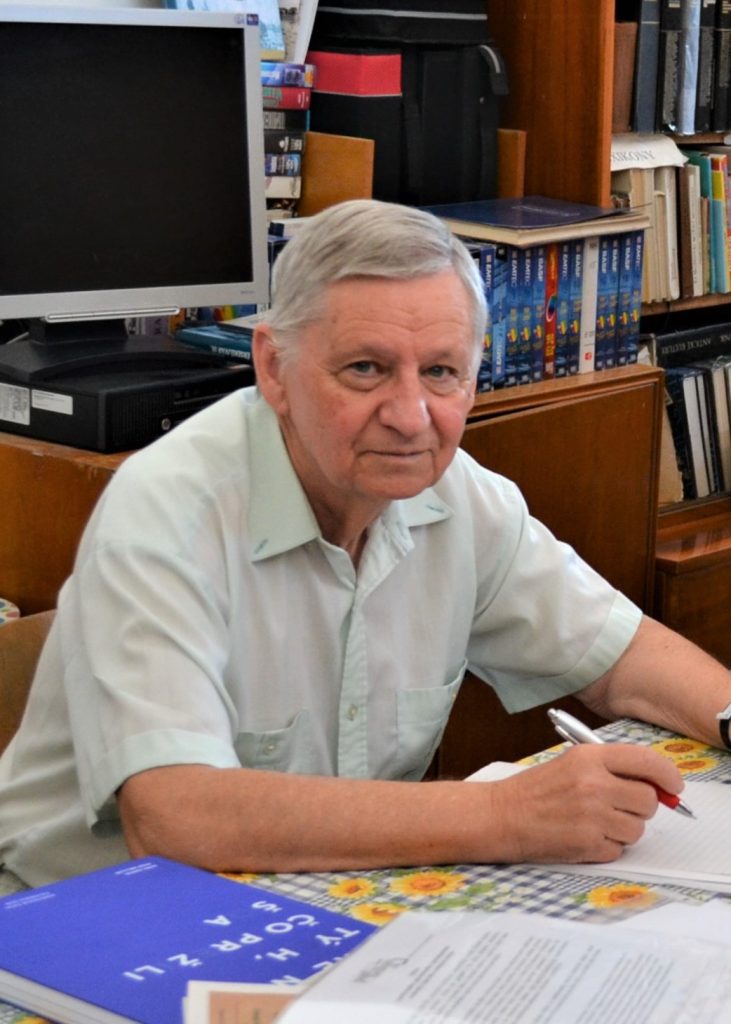
Alexander Štrba was born on October 18, 1946 in Nové Zámky. He grew up together with his younger brother Róbert in a mixed Jewish-Catholic family of father Sándor Štrba (1913) and mother Helena Štrbová née Herzová (1922).
Both families came from Nové Zámky. The father survived the war in the Romanian town of Erdély. In June 1944, her mother’s family was taken with her mother, father and younger sisters Anči and Katka to the Auschwitz-Birkenau concentration camp. Only she and sister Anchi survived the terrible hardships of the extermination camp. After the war, Helena converted to the Catholic faith and got married. Both Alexander and his brother, were brought up in the Catholic faith. Mom didn’t tell her son about the Holocaust and Jewishness, both because her memories were too frightening and because she was afraid that the horrors she experienced might be repeated. Alexander learned about his Jewish origins in childhood, but he knew nothing about the Holocaust, which tragically marked his family. Her story, he was learned only in adulthood, when her mother, already in old age, at the request of her sons, wrote her sad experiences from the concentration camp.
Alexander had a nice childhood, he and his brother played football, went on skates and they use to played games on teachers. In adulthood, both brothers eventually became the same – teachers. After he graduated secondary grammar school, Alexander got into the Pedagogical Faculty of Comenius University in Bratislava, which he did not finish. Less than 21 years old, he married, and in May 1968, their first son, Alexander, was born to his wife. At that time, the wife was working, and Alexander took care of the son. He again enrolled at the Pedagogical University in Nitra, which he graduated from in 1972 and became a teacher. He has already completed the education at Comenius University in Bratislava, what he needed to teach German language for high schools. Until 1988, he taught at the Vocational Secondary School in Dvory nad Žitavou. For the next four years he worked in the Museum of Nové Zámky. In 1989, he lived in the hope of a better future. Although h did not participate in the November demonstrations, but his elder son and daughter participated in the following events.
In 1992, he returned to the Vocational Secondary School. He introduced a system of scoring and probationary graduation for second-year students. At the same time, he began to teach German privately and devoted himself to the history of Nové Zámky. He began to write books on the history of Nové Zámky and he has written 22 books so far
He established the private library of the Bibliotheca of Kalák, which Alexander’s wife runs to this day. Currently, he likes to work in the garden and especially accompanies tourists on the “Walk through the city”, where he tells them about the history of the town of Nové Zámky. Together with his wife, he enjoys his three children and four grandchildren.
The full story of the witness can be found in the online archive Memory of Nations.
